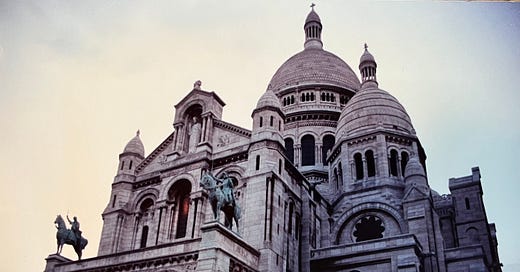Dear friends,
When I was sixteen, I spent the summer in Paris. This sounds more romantic than it was. My grandparents, who hoarded aluminum foil when it went on sale and wore decades-old polyester clothing, allowed as their single extravagance a trip every other year to visit relatives—siblings of my grandfather who had settled there after the Holocaust.…
Keep reading with a 7-day free trial
Subscribe to Ghost Stories to keep reading this post and get 7 days of free access to the full post archives.



